A few weeks ago, there was an item in international media that is a perfect example of what happens when you get a combination of bad science reporting, bad science and moral panics. The story was that apparently research has shown that men who take selfies show more signs of psychopathy (and therefore cut the selfies out).
The reporting
There were lots of stories online but here are 3 I picked non-randomly:
- From Huffpo, Men Obsessed With Selfies Could Have Psychopathic Tendencies, Reveals Study
- From Sydney Morning Herald, Men who take a lot of selfies ‘show strong links to psychopathic tendencies’
- From Russia Today, Men addicted to selfie-posting ‘score high’ on psychopathy scale – study
Already we’re off to a bad start headlines talking about being obsessed or addicted to selfies. But I suppose the headline is expected to have a bit of exaggeration for clickbaiting effect. This is how the articles start:
- “Guys, step away from the selfie stick. New research suggests that men who take a bajillion photos of themselves score highly in the psychopath department.” –Huffpo
- “As if we needed another reason to put a stop to selfies. A new study published in the journal Personality and Individual Differences has revealed that men who take a lot of selfies will score much higher on tests looking for signs of psychopathy.” –SMH
- “You’d better stay away from men who take too many selfies, a new study warns. Obsession with posting online photos probably points to a higher than average degree of narcissism and psychopathy.” –RT
This is where the moral panic bit kicks in. The idea is that selfies are obviously in bad taste and this study confirms the obvious. Not only are they in bad taste but we as a society should put a stop to them (sounds ominous) and fear men who take too many.
The first problem is that this is a study that claims to show men who score more highly on certain [self-reported] anti-social metrics also self-report posting more selfies. It doesn’t suggest any causation, that posting selfies is in itself psychopathic or that it causes men to become more psychopathic. Yet all 3 of these articles begin with a very misleading “take-home” message, as if there’s an obvious course of action and that’s for men to take less selfies (or be feared).
You might argue it’s framed as a jokey intro in all 3 cases but I doubt everyone will read it as such. Especially since many people already buy into the anti-social-media moral panic and don’t understand correlation vs causation.
The stories then go on to explain that this was a study of 800 respondents, who were asked about how often they post selfies online, how much time they spend online, whether they edit their photos before they post them and personality questions like “I tend to want others to pay attention to me (Y/N)”. The stories I’ve seen accepted the study as fact without raising issues like:
- Are there any issues with self-reporting either the personality questions or the social media use questions?
- Could asking questions like “I tend to want others to pay attention to me” bias people’s answers to later questions like “How many selfies do you post”?
- How strong was the correlation? (The stories say “strong”, “much higher” etc. Woo!)
- Are there ideas about the causation/mechanism?
These are just the questions I had as a pleb, and I’m no science communicator.
One other thing I found bizarre was the stories quoted the author saying that editing photos beforehand was a predictor of narcissism while NOT editing photos was a predictor of psychopathy. If those are the results then fine but it does seem like a “damned if you do, damned if you don’t”. If you edit your selfies, you’re obsessed with self-image and if you don’t you’re reckless and impulsive. You’re just not supposed to post selfies if you don’t want to be pathologised.
It’s not like there’s ever been a history of delegitimising selfies as a way to shut up classes of people, right? Cough cough. Onto the study.
The study
Here’s the abstract, freely-available to all:
An online survey of a nationally representative sample of U.S. men aged 18–40 assessed trait predictors of social networking site use as well as two forms of visual self-presentation: editing one’s image in photographs posted on social networking sites (SNSs) and posting “selfies,” or pictures users take of themselves. We examined the Dark Triad (i.e., narcissism, Machiavellianism, and psychopathy) and trait self-objectification as predictors. Self-objectification and narcissism predicted time spent on SNSs. Narcissism and psychopathy predicted the number of selfies posted, whereas narcissism and self-objectification predicted editing photographs of oneself posted on SNSs. We discuss selective self-presentation processes on social media and how these traits may influence interpersonal relationship development in computer-mediated communication.
The earlier questions still stand. But then I got a hold of the full paper and looked at the results. They were disappointing to say the least, and probably a sign of the statistical shenanigans that get accepted into peer review all too often (especially in psych). I don’t know much about statistics so I may be missing something but for the relationship between anti-social traits and selfies to be worth publishing and writing articles about, it should be pretty solid. From this page (including images), a perfect correlation is 1.0 and looks something like this, with an obvious relationship: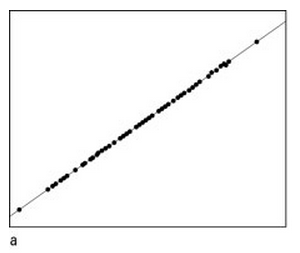
Something like 0.7 is a strong relationship. Here’s one of 0.85:
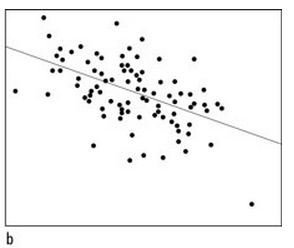
0.5 is considered moderate. Here’s one of a [negative] 0.5. It’s much messier but there’s definitely a line emerging.
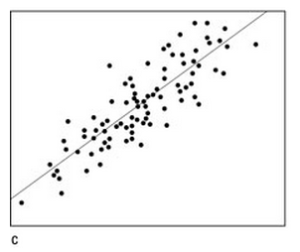
0.3 is considered weak. Here’s an example of an even lower one for 0.15. Basically a scattered cloud for which we can calculate a line of best fit, but it’s useless since we can do this for any cloud and there’s no reason to assume the relationship.
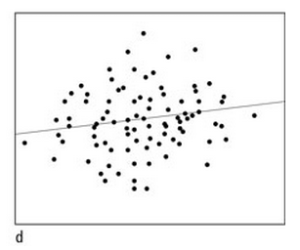
I’m happy to report that the paper found some really strong correlations of around 0.5…between:
- narcissism and machiavellianism
- psychoticism and machiavellianism
- photos taken and selfies posted
Yep, people who took more photos are more likely to post more selfies! When it comes time to correlating the anti-social traits with social media use, the results aren’t anything to brag about. The highest correlation is 0.19 (still below “low”), but about half of them are in single digits – something like a sad 0.09. Many are statistically significant because there’s a large sample size (~800 people) but not meaningful.
They also reported some regression models of predictors that suggest that the anti-social traits account for around 0.1 to 0.15 of the variation in selfie posting, which again I’d say is a negative result. Especially since they had 4 anti-social tests to try, giving lots of tests and lots of chances that some of them would get a correlation by chance alone.
So there we have it, inconclusive (and I dare say bad) research that was then badly reported on to confirm a moral panic about social media. While it’s very easy to imagine that people scoring high on traits of narcissism or machiavellianism might use selfie posting as one of their outlets, I definitely wouldn’t worry about having to “cut down” your selfies so as to become less machiavellian.

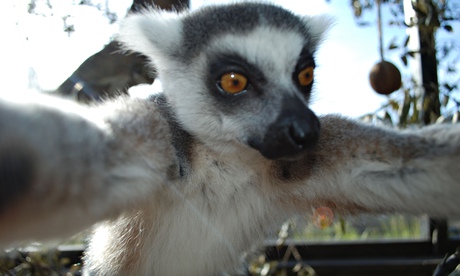
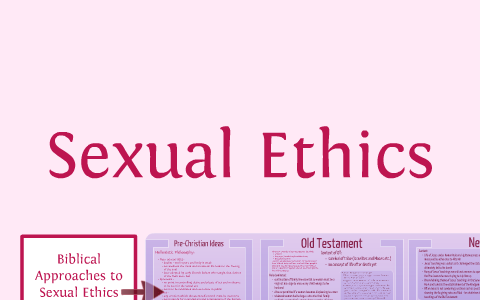
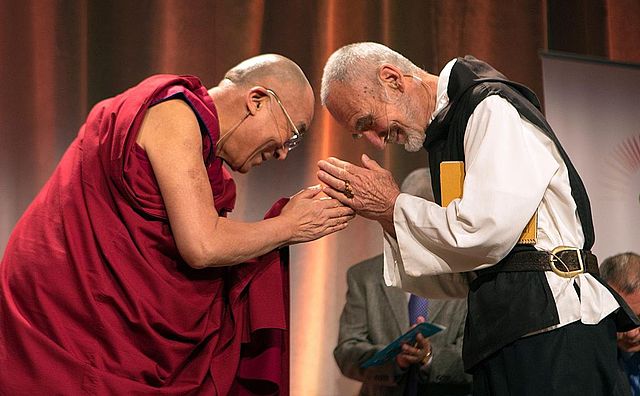
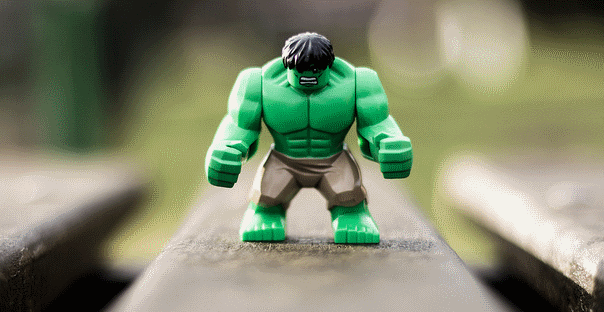
0 Comments